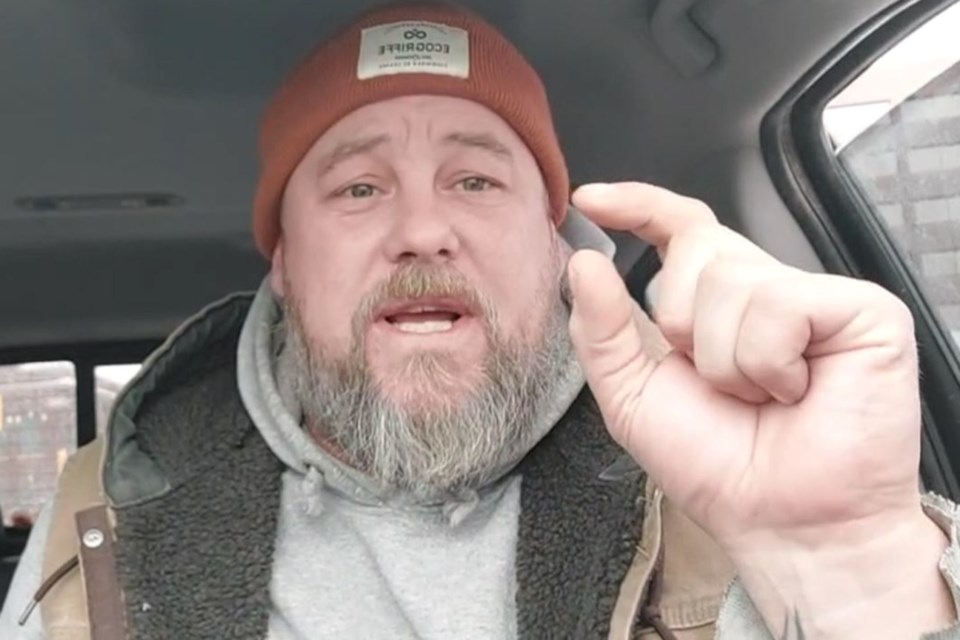The anger and widespread distrust of media, governments and health authorities that fuelled the recent convoy protests in Ottawa are here to stay and will have a long-term impact on Canadian politics, say experts who monitor extremism and the far-right.
So will the convoy organizers, some of whom espouse far-right, extremist views, they said.
"This is something that we can't ignore," Kurt Phillips, a board member with the Canadian Anti-Hate Network, said in a recent interview. "We can recognize this as a problem here and deal with it ... or we could do what we did before and stick our heads in the sand and pretend it doesn't exist until we have another blow-up."
Billed as the "Freedom Convoy 2022," the demonstration began Jan. 28 as transport trucks and thousands of people converged on Parliament Hill and took over downtown Ottawa for about three weeks, ultimately prompting Prime Minister Justin Trudeau to invoke the federal Emergencies Act. Arrests began Feb. 17, and by the end of the following day, police charged more than 100 people with various offences.
Participants said their movement was largely in opposition to the country's COVID-19 restrictions and vaccine mandates.
Amarnath Amarasingam, an assistant professor at Queen's University's school of religion and senior fellow with the International Centre for the Study of Radicalisation, said the vast majority of convoy participants were not extremists, adding that he doesn't think it's fair to categorize the entire demonstration as a far-right rally.
"I think the organizers are definitely far-right and definitely extremist, but the movement is a bit more eclectic and broader than that," he said in a recent interview.
Organizers and frontmen included Pat King, who has been on the radar of the Canadian Anti-Hate Network for some time. He's also seen in a video posted to Twitter in 2019 saying there is an "endgame" to "depopulate the Anglo-Saxon race."
King was arrested Feb. 18 and charged with several offences, including counselling to commit mischief. Last Friday, he was denied bail. Neither King nor his lawyer, Cal Rosemond, responded to a request for comment.
Another convoy organizer, Benjamin Dichter, is reported by the Toronto Star to have told a 2019 People's Party of Canada convention that, "Islamist entryism and the adaptation of political Islam is rotting away at our society like syphilis." He objected on Twitter to being called extremist when asked for comment, and he didn't respond to an interview request.
Dichter made an appearance on the popular Fox News show, "Tucker Carlson Tonight" on Jan. 27, and King became a kind of celebrity during the convoy demonstration, with protestors stopping to high five him and take selfies, Amarasingam said. King also appeared on Fox News's business channel, Fox Business, as a "co-founder" of the convoy.
"I think that convoy really boosted the profile of a lot of these people and made them celebrities across Canada," Amarasingam said. "We might start to see them organize a bit more formally or just continue as a grassroots right-wing populist movement that will have a voice in Canadian politics in some form or another."
Overall, Amarasingam said the convoy protests resulted in a "maturing and mainstreaming" of a right-wing Canadian populist movement similar to the Tea Party in the United States, which emerged in 2009. "It's much more about this groundswell of support for this 'people' against the 'elite' [narrative] and all that entails," he said.
Phillips is the founder of the Anti-Racist Canada website, where he tracked Canadian far-right movements for over a decade. He said he hopes the involvement and amplification of far-right influencers in the convoy protests serves as a wake-up call for the country to start taking the politics of these people seriously.
Canada has long punched above its weight when it comes to producing home-grown far-right influencers, Phillips said, pointing as an example to the Proud Boys, who were listed by the federal Liberal government as a terrorist organization following the January assault on Capitol Hill in Washington, D.C.
"My big worry is now that this has slowed down ... are we going to go back and pretend it doesn't exist?" he asked. "If we do that it's going to continue to fester and grow."
David Hofmann, an associate professor of sociology at the University of New Brunswick who studies extremism, says he has no doubt Canadian far-right groups saw the convoy as a success.
"There's energy," he said in a recent interview. Buoying that energy, he said, is a growing public tolerance for symbols and attitudes of hate and extremism.
"What we need to do as Canadians is push back, and push back in a non-violent way," Hofmann said. "We need to ... make it clear that this type of hateful rhetoric, these types of viewpoints are not acceptable here in Canada or elsewhere. And what it takes is individual Canadians stepping up."
This report by The Canadian Press was first published March 3, 2022.
